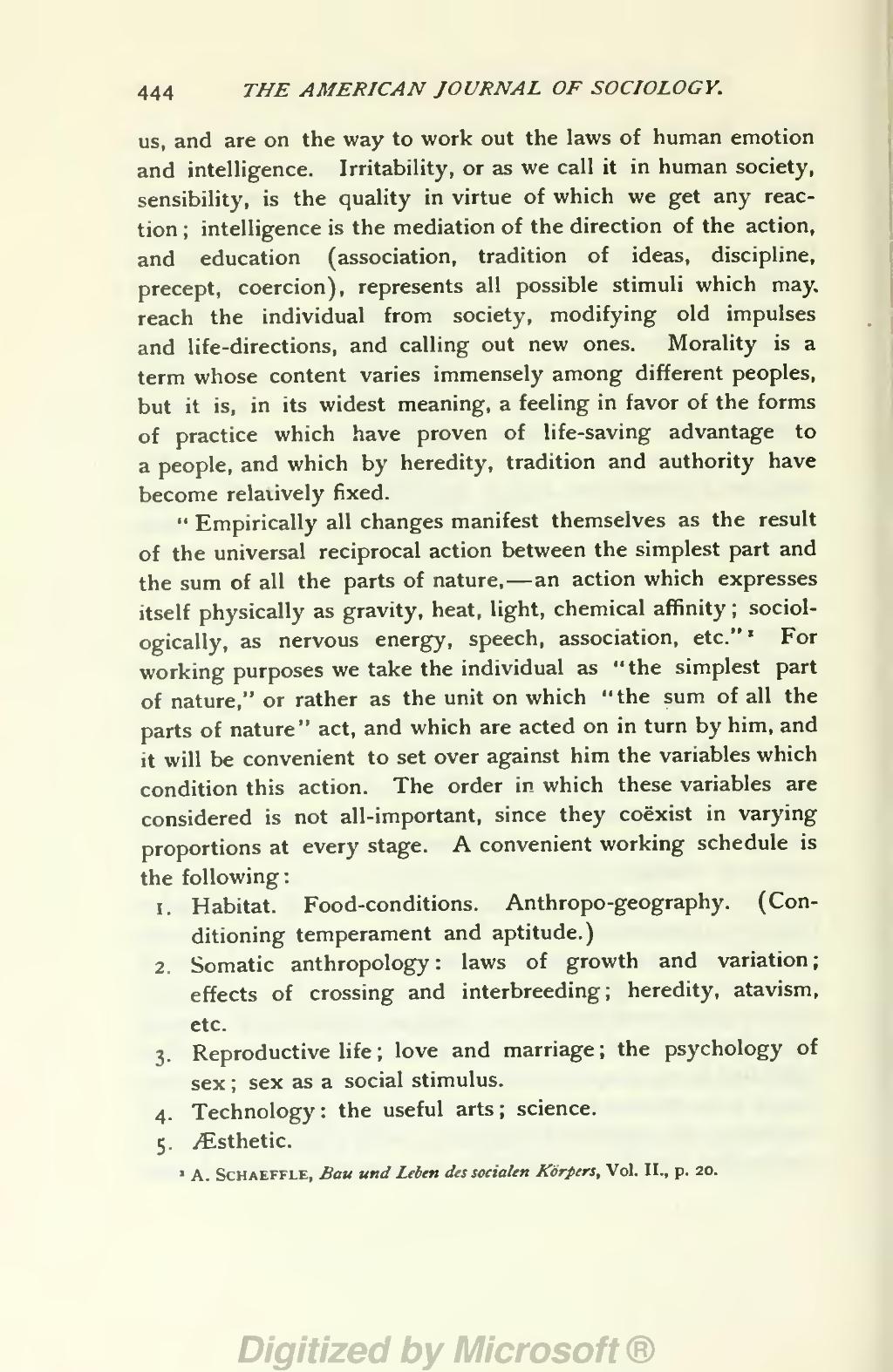us, and are on the way to work out the laws of human emotion and intelligence. Irritability, or as we call it in human society, sensibility, is the quality in virtue of which we get any reaction; intelligence is the mediation of the direction of the action, and education (association, tradition of ideas, discipline, precept, coercion), represents all possible stimuli which may reach the individual from society, modifying old impulses and life-directions, and calling out new ones. Morality is a term whose content varies immensely among different peoples, but it is, in its widest meaning, a feeling in favor of the forms of practice which have proven of life-saving advantage to a people, and which by heredity, tradition and authority have become relatively fixed.
"Empirically all changes manifest themselves as the result of the universal reciprocal action between the simplest part and the sum of all the parts of nature,—an action which expresses itself physically as gravity, heat, light, chemical affinity; sociologically, as nervous energy, speech, association, etc."[1] For working purposes we take the individual as "the simplest part of nature," or rather as the unit on which "the sum of all the parts of nature" act, and which are acted on in turn by him, and it will be convenient to set over against him the variables which condition this action. The order in which these variables are considered is not all-important, since they coexist in varying proportions at every stage. A convenient working schedule is the following:
1. Habitat. Food-conditions. Anthropo-geography. (Conditioning temperament and aptitude.)
2. Somatic anthropology: laws of growth and variation; effects of crossing and interbreeding; heredity, atavism, etc.
3. Reproductive life; love and marriage; the psychology of sex; sex as a social stimulus.
4. Technology: the useful arts; science.
5. Æsthetic.
- ↑ A. Schaeffle, Bau und Leben des socialen Körpers, Vol. II., p. 20.
